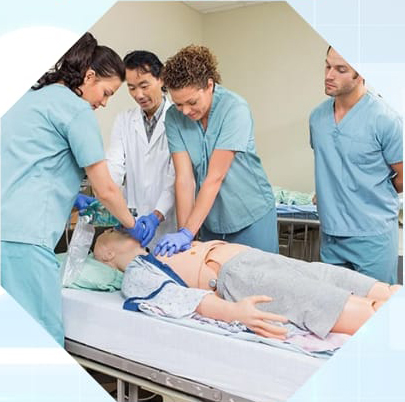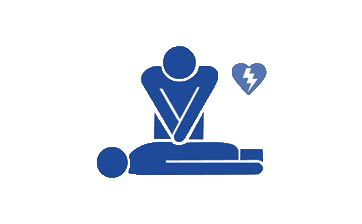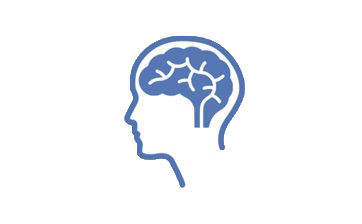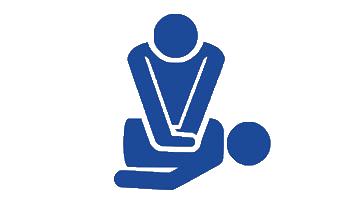On completion of the course, the students will be able to:
- Understand the Fundamentals of Comprehensive Cardiac Life Support (CCLS): Explain the key components and protocols of CCLS, focusing on the management of cardiac emergencies
- Recognize and Assess Cardiac Emergencies: Identify the signs and symptoms of various cardiac conditions, including Acute Coronary Syndrome (ACS), across different patient populations
- Interpret ECG Rhythms: Analyze ECG rhythms to identify life-threatening arrhythmias, myocardial infarction, and other cardiac abnormalities, and apply appropriate interventions based on the rhythm identified
- Provide Advanced Airway and Breathing Management: Execute advanced airway techniques, including intubation and the use of airway adjuncts, as well as provide effective ventilation support
- Deliver High-Quality Chest Compressions: Perform high-quality chest compressions and integrate them with advanced life support interventions to optimize patient outcomes during cardiac arrest
- Administer Cardiac Medications: Correctly administer medications used in the management of ACS and other critical cardiac conditions, understanding their indications, dosages, and potential side effects
- Manage Acute Coronary Syndrome (ACS): Implement the initial and advanced management of ACS, including the administration of oxygen, aspirin, nitroglycerin, thrombolysis, and other interventions based on current guidelines
- Establish Intraosseous (IO) Access: Demonstrate the ability to establish intraosseous access for the rapid administration of medications and fluids in critically ill patients when intravenous access is not feasible
- Implement the Stroke Algorithm: Recognize stroke symptoms early, initiate the stroke algorithm, including rapid assessment, imaging, and thrombolytic therapy when appropriate, to improve patient outcomes
- Provide Post-Cardiac Arrest Care: Implement post-resuscitation care, including hemodynamic support, targeted temperature management, and neurological monitoring, to improve patient outcomes after cardiac arrest
- Enhance Team Dynamics in Emergency Situations: Demonstrate effective communication, leadership, and collaboration within a multidisciplinary team during cardiac emergencies
- Coordinate a Multidisciplinary Team Response: Collaborate effectively with various healthcare professionals, including cardiologists, nurses, and paramedics, to deliver comprehensive care during emergencies
Note: All payments are non-refundable
Course Features
- Duration Info 2 Days
- Language English
Curriculum is empty





